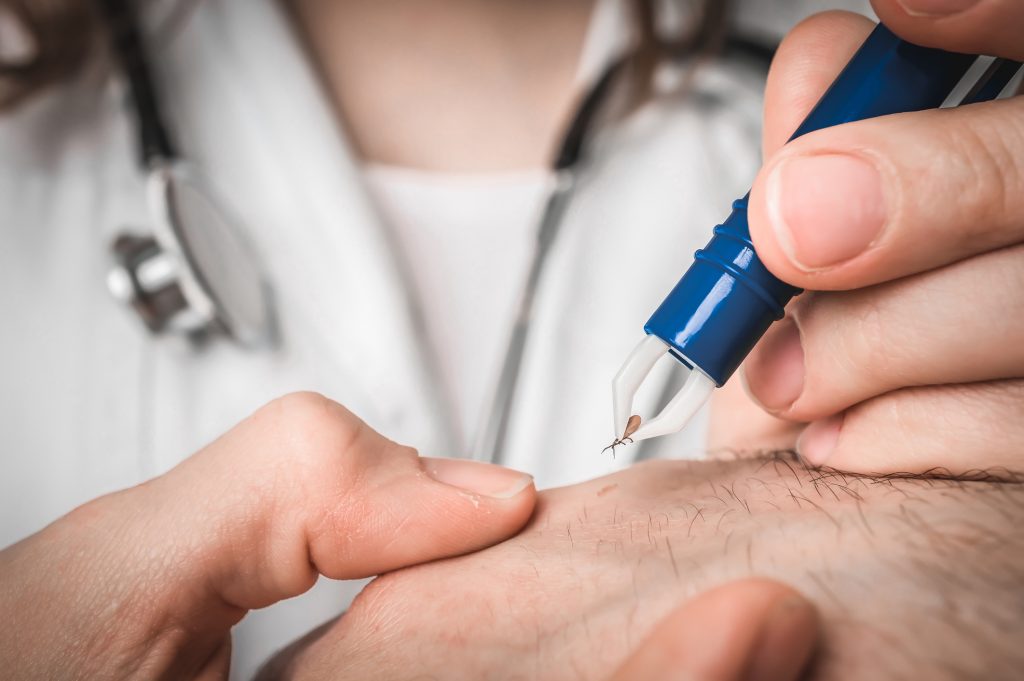Lyme Disease

Do I Need Antibiotics for Lyme Disease?
Lyme disease is an infection caused by the bacteria B. burgdorferi that is spread by ticks. You can get Lyme disease if you are bitten by an infected tick. But most people who have had a tick bite in BC don’t get Lyme disease. It’s still important to see your doctor if you have a tick attached to you that you can’t remove.
Why You Might Need Antibiotics for Lyme Disease
The majority of people with Lyme disease can be treated successfully with two to four weeks of antibiotics, especially if caught early.
A small proportion of patients who have had Lyme disease have symptoms that last months to years after treatment with antibiotics. These symptoms can include muscle and joint pains, sleep disturbance, or fatigue. The cause of these symptoms is not known, but there is no evidence that these symptoms are due to ongoing infection with B. burgdorferi. Studies have shown that continuing antibiotic therapy beyond four weeks is not helpful and can be harmful for people suffering from these symptoms.
Symptoms of Lyme Disease
Early symptoms of Lyme disease can appear from 3 days up to a month after being bitten, and include:
- Round, red rash that spreads at the site of the tick bite
- Flu-like symptoms (tired, headaches, sore muscles and joints, fever)
If untreated, more serious symptoms can develop over time, including:
- Swelling and joint pain (arthritis)
- An interruption of normal heart rhythm (heart block)
- Weakness or paralysis in your face muscles or other examples of problems with individual nerves
In British Columbia, you can call HealthLink BC (at 8-1-1) or visit healthlinkbc.ca if you need advice or are unsure of the best course of action.



